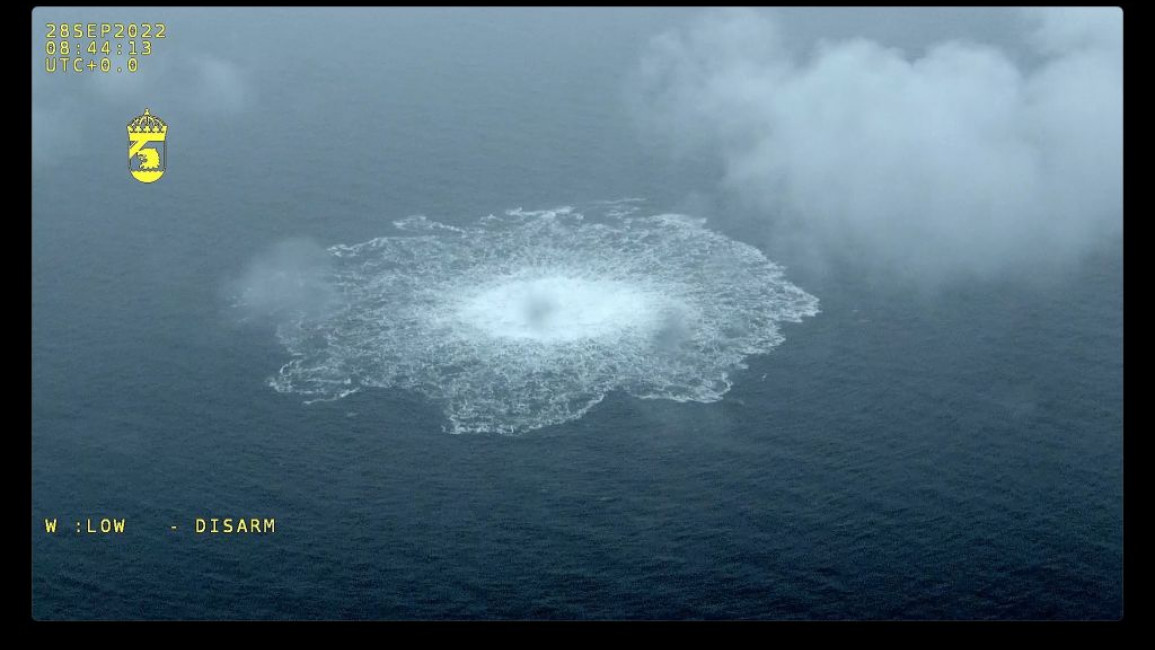West cautious on Nord Stream blasts, Germany confirms raiding suspect ship
Western allies on Wednesday warned against reaching premature conclusions on who was responsible for blowing up the Nord Stream pipelines, with Germany suggesting the attack could also have been a "false flag" operation to blame Ukraine.
A New York Times report, citing intelligence reviewed by U.S. officials, said on Tuesday a pro-Ukrainian group may be behind the blasts that became a flashpoint between the West and Russia after last year's Russian invasion of Ukraine.
The report, while not pointing to any official Ukrainian involvement, comes at a time when Kyiv is urging its Western allies to ramp up supplies of high-end weapons to drive back Russian forces as the war enters its second year.
"There are ongoing national investigations and I think it's right to wait until those are finalised before we say anything more about who was behind it," said NATO Secretary-General Jens Stoltenberg.
Investigations continue into what caused the Nord Stream pipelines, supplying Russian energy to Europe, to rupture and spew bubbles of natural gas into the Baltic Sea last September. Western countries believe the explosions were deliberate but have not concluded who was behind them.
"This new partnership is in a nascent stage and might lead to a formal defence alliance between the two countries."@pauliddon explores how the #UkraineWar led to a deepening strategic alliance and a reshaping of military ties between Iran and Russia 👇 https://t.co/OdJImx4i4e
— The New Arab (@The_NewArab) March 6, 2023
Russia, which has previously blamed the West, seized on the news on Wednesday to demand a transparent investigation in which it also wants to participate.
A separate report by Germany's ARD broadcaster and Zeit newspaper said on Tuesday the operation to place explosives on the seabed was carried out by six people, five men and one woman, who used forged passports.
They transported explosives on a yacht rented from a German charter company by a Poland-based firm owned by Ukrainian citizens, according to the report and prosecutors.
"We have to make a clear distinction whether it was a Ukrainian group, whether it may have happened at Ukrainian orders, or a pro-Ukrainian group (acting) without knowledge of the government," German Defence Minister Boris Pistorius said on Wednesday.
"But I am warning against jumping to conclusions," Pistorius said on the sidelines of a summit in Stockholm.
Pistorius said earlier the likelihood was "equally high" that it could have been a "false flag operation staged to blame Ukraine".
Germany, meanwhile, confirmed its investigators had raided a ship in January that may have been used to transport the explosives used to blow up the pipelines.
But a statement by the federal prosecutor said there was no reliable information yet on motives or perpetrators, including on whether the attack was state-sponsored.
"There is no suspicion against employees of the German company that rented out the ship," it added.
"Saudi Arabia's delicate balance between Ukraine and Russia mirrors the approach of its Gulf Cooperation Council partners."@SamRamani2 unpacks the GCC's balancing act in the #UkraineWar https://t.co/vi7fYiukdI
— The New Arab (@The_NewArab) March 6, 2023
European Union foreign policy chief Josep Borrell told reporters: "As long as investigations into Nord Stream blasts are ongoing, we can not draw conclusions."
The New York Times said there was no evidence that Ukrainian President Volodymyr Zelenskiy or other Ukrainian government officials had played any role in the attacks.
Also in Stockholm, Ukrainian Defence Minister Oleksii Reznikov said the media reports were a "little bit strange" and had "nothing to do" with the Ukrainian government.
"It's like a compliment for our special forces," he joked. "But this is not our activity."
Reznikov said he was not worried about the prospect of the media reports weakening support for Ukraine. Pistorius batted away a similar question about Western support as "hypothetical".
Kremlin spokesman Dmitry Peskov suggested the media reports were a coordinated bid to divert attention and questioned how U.S. officials could assume anything about the attacks without an investigation.
"The very least that the Nord Stream shareholder countries and the United Nations must demand is an urgent, transparent investigation with the participation of everyone who can shed light," Peskov said.
The U.S. intelligence review suggested those who carried out the attacks opposed Russian President Vladimir Putin "but does not specify the members of the group, or who directed or paid for the operation", the New York Times wrote.
"Officials who have reviewed the intelligence said they believed the saboteurs were most likely Ukrainian or Russian nationals, or some combination of the two," according to the New York Times report.
Investigators founds traces of explosives on the yacht, which the group took from Rostock, Germany, on Sept. 6, according to ARD and Zeit. They also reported that intelligence indicated that a pro-Ukrainian group could be behind the attack, but German authorities have not yet found any evidence.
Reuters could not independently verify the information.
Russia last month gave the U.N. Security Council a draft resolution which - if adopted - would ask U.N. Secretary-General Antonio Guterres to set up an international investigation.
(Reuters)


![President Pezeshkian has denounced Israel's attacks on Lebanon [Getty]](/sites/default/files/styles/image_684x385/public/2173482924.jpeg?h=a5f2f23a&itok=q3evVtko)



 Follow the Middle East's top stories in English at The New Arab on Google News
Follow the Middle East's top stories in English at The New Arab on Google News


